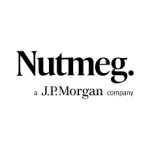Fixed returns – our round up of the latest fixed rate options
Last updated: 30/08/2016
For those who want to know exactly how much they will receive, when and for how long, the traditional deposit-based fixed rate bond has long been one of the safest and most popular choices for many. But with interest rates on savings remaining at record lows, and with the possibility of this getting even or fixed worse as we get to grips with the post-Brexit environment, many more are starting to consider the wider range of products offering a fixed return. So whether it is the more traditional fixed rate bond rate Cash ISA, or you are looking to put your capital at risk in return for a higher fixed income, we take a look at a number of options as well as give you a round-up of the latest offerings.
Short term: up to 2 years
Fixed rate bonds
For those looking at the shortest fixed terms, Habib Bank Zurich offer a 6 Month Fixed Rate Deposit paying 0.80% AER, whilst they also offer a higher rate of 1.10% AER if you can tie your money up for a year, with their 12 Month Fixed Rate Deposit. Both products have a relatively low minimum of £1,000 and your deposit is eligible for the Financial Services Compensation Scheme (FSCS). Interest is paid at maturity and as is standard with most fixed term deposits, no withdrawals are permitted during the term of the bond.
Bank of Cyprus UK offer a top rate of 1.40% AER if you fix for 2 years, although they have a slightly higher minimum of £10,000 whereas Habib Bank will offer 1.35% AER with their 24 Month Fixed Rate Deposit but with a lower minimum of £1,000. Both pay interest at maturity and eligible deposits are covered by the UK FSCS.
Fixed rate Cash ISA
Bank of Cyprus UK offer a 2 Year Fixed Rate Cash ISA paying 1.20% AER, and only marginally higher at 1.30% AER if your fix for 3 years, both with a low minimum deposit of just £500. These accounts are available to anyone aged 16 or over and interest is paid annually. ISA transfers are permitted and eligible deposits are covered by the UK FSCS.
Medium term: 3 to 4 years
Fixed rate bonds
In the three to four year space, our top deal comes again from Bank of Cyprus UK with their 3 Year Fixed Rate paying 1.50% AER. The minimum deposit is £10,000 and interest is paid on maturity. For those looking for a lower minimum or more frequent payment of interest, AXIS Bank UK’s 3 Year Fixed Term Deposit also pays 1.50% AER but with a £1,000 minimum (£200,000 maximum) and offers monthly, quarterly, annually or at maturity interest options. No withdrawals are permitted from either account.
Bank of Cyprus remain very competitive in the fixed rate Cash ISA market with their 3 Year Fixed Rate Cash ISA currently paying 1.30% AER and with a respectable minimum deposit of just £500. This account also allows you to transfer in existing ISAs from other providers.
Longer term: 5 years +
Fixed rate bonds
Although you are still rewarded with higher savings rates in return for locking your money away for longer, the interest rate gap between short term and longer term is also at record lows. For those prepared to commit their savings for five years, Vanquis Bank’s 5 Year Fixed Rate Bond is paying 2.20% AER. The minimum deposit is £1,000 and interest can be paid monthly or annually.
Savings rates at record lows…
Unfortunately the UK’s decision to leave the EU has had an impact on what were already record low interest rates on offer. Combined with the talk of the Bank of England potentially cutting the Bank Rate for the first time since 2009, and the outlook for many who rely on more traditional fixed term deposits is bleak to say the least.
To put this into context, 12 months ago we wrote about a 1 year fixed rate paying 1.90% AER, a 2 year paying 2.38% AER and a 3 year paying 2.50% AER . We are now looking at 1.25%, 1.60% and 1.65% AERs respectively. These are significant reductions of up to 34% on what were already historically low returns, with the biggest falls being felt at the longer term end of the market. This is why more and more are looking at a wider range of options, which inevitably leads one to consider investments.
Fixed income investments
The income from collective investments (such as funds) invariably comes from investing in a number of equities, bonds and commercial properties, which provide income in the form of dividends, interest and rental yields. Combined with the fluctuation in value of the underlying asset, be this a share, bond or property, then by its very nature the value is neither fixed nor guaranteed, and so such investments normally only offer a variable income.
Fixed income, fixed term
Investors have therefore always struggled to find an investment that actually pays a fixed income, which perhaps partly helps to explain why the Enhanced Income Plan from Investec has been our most popular income investment. The plan offers a fixed income, which is paid to you regardless of the performance of the stock market, whilst the investment also has a fixed term, so you know exactly how much you will be paid and for how long. The current issue offers 5.04% fixed income each year, which is paid as 0.42% each month.
This investment includes conditional capital protection which means that your initial capital is retuned in full unless the FTSE 100 Index falls by more than 50% during the plan term. If it does, and also finishes the fixed term lower than its value at the start of the plan, your initial investment will be reduced by 1% for every 1% fall, so you could lose some or all of your initial investment.
The Enhanced Income Plan is also available as an ISA and accepts ISA transfers with a minimum investment of £3,000.
Cash versus investment
The most important difference between the fixed rate bond and the fixed income investment is that with the former, your capital is treated as a deposit and is therefore protected and returned to you at the end of the term, subject to the bank in question remaining solvent. An investment into the Enhanced Income Plan is used to purchase securities issued by Investec Bank plc, which means the bank’s ability to meet and repay their financial obligations is equally an important consideration. However, as highlighted above the return of your capital is also dependent on the performance of the FTSE 100 Index, therefore your capital is not protected and is at risk.
Peer to Peer
One particular area where we have seen a significant rise in the number of the offerings is Peer to Peer lending, some of which offer fixed rates of interest. In simple terms, peer to peer lenders match people who want to earn interest on their money with people who want to borrow money. This means that both lenders and borrowers can benefit from interest rates that are better than those found on the high street, whether from conventional fixed rate accounts or from bank loans.
Fixed interest
One of the earliest and perhaps best known Peer to Peer lenders offering fixed interest is Wellesley & Co. Here your investment is combined with funds from other investors and then lent out to individuals and businesses investing in property – so every loan is secured against tangible assets such as residential or commercial property. They then use the interest paid by them to pay competitive rates to investors. Wellesley have lent out over £336m to date.
The current rates (based on receiving monthly interest) are 2.95%, 3.30% and 3.70% over 1, 2 and 3 years respectively. You also have the option to receive interest at maturity, offering up to 3.75% annual interest. Compared to deposit-based fixed rate bonds these headline rates are attractive however these are capital at risk investments, and so you could lose some or all of your initial investment and interest payments are no guaranteed if the borrower fails to repay the loan. Peer to Peer lending is also not covered by the Financial Services Compensation Scheme.
Risk v reward
The principle of risk versus reward means that the search for higher fixed returns leads to the need to consider putting your capital at risk. A good benchmark for assessing your fixed rate investment is to compare what you could get from a fixed rate deposit over a similar timeframe and then consider whether you are prepared to accept the level of risk to your capital in return for the higher fixed rate.
Our best three and five year fixed rates are currently offering 1.85% and 2.20% respectively. By accepting risk to your capital, Wellesley would offer fixed interest of 3.70% over three years whilst the Investec plan offers 5.04% over six years, thereby doubling your fixed return over three year and increasing it by 2.84% a year over the longer term. Once you have understood how each plan works, the decision then is whether you are comfortable with putting your capital at risk in return for the higher fixed returns on offer.
Compare fixed rate Cash ISAs »
Compare Peer to Peer investments »
Find out more about the Investec Enhanced Income Plan »
No news, feature article or comment should be seen as a personal recommendation to invest. Prior to making any decision to invest, you should ensure that you are familiar with the risks associated with a particular investment. If you are at all unsure of the suitability of a particular investment, both in respect of its objectives and its risk profile, you should seek independent financial advice.
Tax treatment of ISAs depends on your individual circumstances and is based on current law which may be subject to change in the future. Always remember to check whether any charges apply before transferring an ISA.
The Investec Enhanced Income Plan is a structured investment plan which is not capital protected and is not covered by the Financial Services Compensation Scheme (FSCS) for default alone. There is a risk of losing some or all of your initial investment. There is a risk that the company backing the plan or any company associated with the plan may be unable to repay your initial investment and any returns stated. In addition, you may not get back the full amount of your initial investment if the plan is not held for the full term. The past performance of the FTSE 100 Index or any shares listed within the Index is not a guide to their future performance.
Peer to peer savings accounts are not the same as normal savings accounts so you need to consider the features before you invest. Investment through Wellesley & Co involves lending to individuals or companies and therefore your capital is at risk and interest payments are not guaranteed if the borrower fails to repay the loan. In that event, Wellesley Finance would attempt to recover the funds outstanding. However, such security arrangements do not guarantee full return of capital and income. Peer-to-Peer lending is not covered by the Financial Services Compensation Scheme.
AER stands for the Annual Equivalent Rate and illustrates what the interest rate would be if interest was paid and compounded once each year.
Tags





